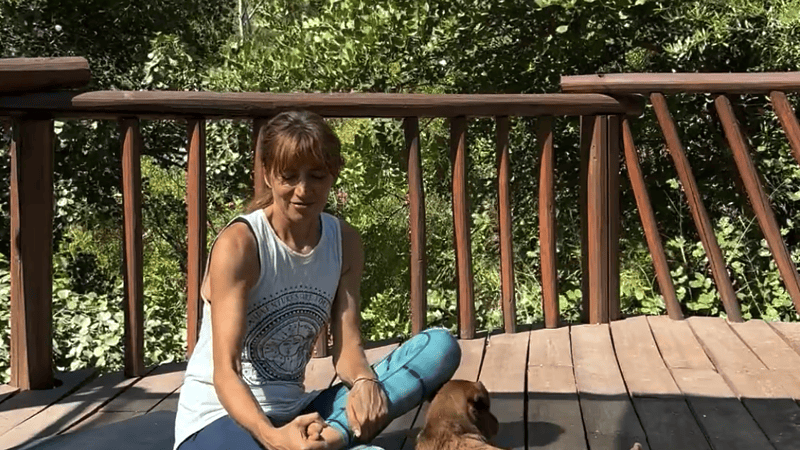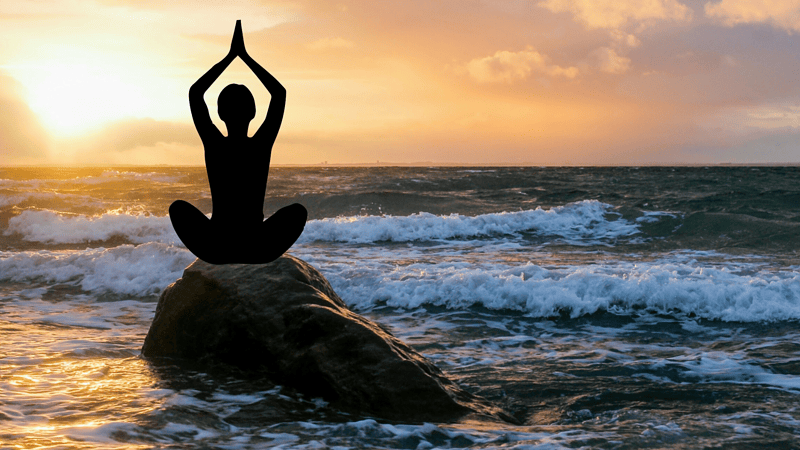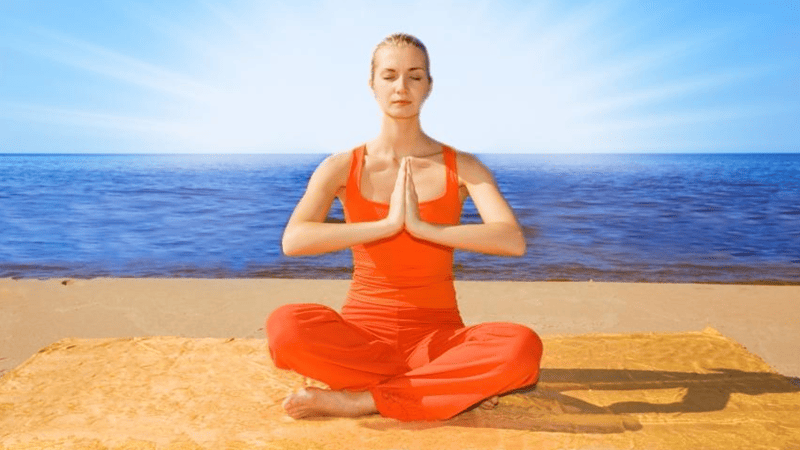
Adapting your yoga practice to improve sleep
Enjoy better sleep with these simple yoga tips and prepare for a blissful, restful night. By Wendy Jacob
Many will be familiar with the feeling - a late night, an energising evening yoga practice, a busy mind - not only affecting how you sleep and feel, but also impacting on your health and yoga practice.
This article looks at some of the scientific evidence that supports the need for a good night’s sleep and suggests ways to adapt your yoga practice to encourage the mind and body to prepare for sleep.
Sleep is essential to good health, but recent research suggests many people are not only finding it difficult to sleep, but also report dissatisfaction with the quality of their sleep.
Sufficient sleep should leave you feeling refreshed and with enough energy to get through a busy day. Insufficient sleep not only affects the body’s ability to renew itself, but also affects concentration, contributing to feelings of anxiety and depression. The mind and body, depleted, turns to unhealthy sources of fuel, such as sugar and carbohydrates, in an effort for a quick fix.
By adapting our yoga practice, we are able to combat insomnia and improve the quality of our sleep. The following tips, practiced regularly, will trigger the relaxation response, encouraging a blissful sleep and creating energy and vitality for the day ahead.
Our wake/sleep rhythm is controlled by the circadian rhythm, which influences the times when we sleep and wake. Melatonin starts to activate the shift towards sleep and although this will differ with individuals, this is usually around late afternoon. This would suggest that a slower practice would benefit anyone who is finding sleep evasive, or is concerned about the quality of their sleep.
Evidence suggests that emphasising the lower body will help activate the sleep response – particularly seated forward folds and prone poses. Deep, slow breaths will also activate the parasympathetic nervous system, calming the mind and relieving anxiety, one of the major sleep inhibitors and causes of insomnia.
Sleep is essential for both physical health and mental wellbeing. Current research demonstrates the connection with sleep and memory. A busy mind, anxiety and depression all inhibit the ability to fall and stay asleep. Meditation and relaxation practices encourage the mind to slow down. Adopting practices such as writing a diary before sleep, listening to calming instrumental music and Yoga Nidra help prepare the mind for sleep.
Research suggests that less than 5 hours, and more than 10 hours of sleep contribute to cognitive decline. A regular routine that respects an individual’s own sleep requirement will help protect from degenerative conditions such as dementia and Alzheimer’s disease. A sleep diary, or watch, which records stages of sleep and hours slept, will help you identify your own sleep requirement and how this affects the following day’s mood, memory, appetite and performance, which are all affected by the quality of sleep.
A yoga practice ending in relaxation (savasana) could benefit the brain. Recent research showed that exercise followed by a short nap work together to enhance long-term memory. Napping is also effective in restoring short-term alertness when needed and should be limited to around 20 minutes, before slipping into the earlier stages of sleep.
Yoga can support a healthy lifestyle and contribute to a blissful night’s sleep. The following practice schedule is designed to work with the body’s natural rhythm and improve sleep, contributing to mental and physical wellbeing and improve mood.
6-7am. Wake. Before rising, reflect on your sleep and write in your diary any recollection of dreams, thoughts and intentions for the coming day. Stretching and gentle twists prepare the body and build a sensitive awareness, proprioception and interoception of the body.
7-8am. Meditation and practice. The early morning is when the mind is more alert, refreshed following sleep and ready for meditation. The body will also appreciate attention and will benefit from a practice such as Surya Namaskar (sun salutations), mobilising joints and stretching muscles in preparation for a more intensive practice later in the day.
12-2pm. Meal and rest. This is the ideal time for the main meal of the day. Ideally, this would be followed by a rest or a walk, giving the body the opportunity to digest and restore energy for the remainder of the day.
2-4pm. Research with athletes suggest that the body is at its ‘peak’ during the afternoon. This would be the ideal time to develop and practice a more dynamic class, such as Ashtanga, power or hot yoga, or undertake a longer practice.
6-8pm. A slower practice, such as Yin, or Restorative Yoga, is recommended in the evening, as the body and mind start to wind down, ready to digest and rest, in preparation for sleep.
10pm. A warm bath, a cool room, a comfortable bed and a calming environment (technology-free) are steps towards a peaceful drift into sleep. This would be the time to free the mind from any remaining niggly thoughts by passing them into writing in your diary. A long stretch, a slow breath and now is the time to sink into the welcoming embrace of a restorative sleep.
When the internal clock - the sleep homeostatis - and the external influence of the circadian timer work in unison, the body is programmed to sleep at night. In today’s turbulent world, this can be upset with demands and responsibilities that work against the body’s natural response to night and day. By adapting your practice, to work within your individual time clock, you will be helping your mind and body work in harmony, improve the quality of your sleep, benefit from better health and feel more alert when you come to the mat.
Further information on Yoga and Sleep visit: myyogajourney.co.uk/blog







